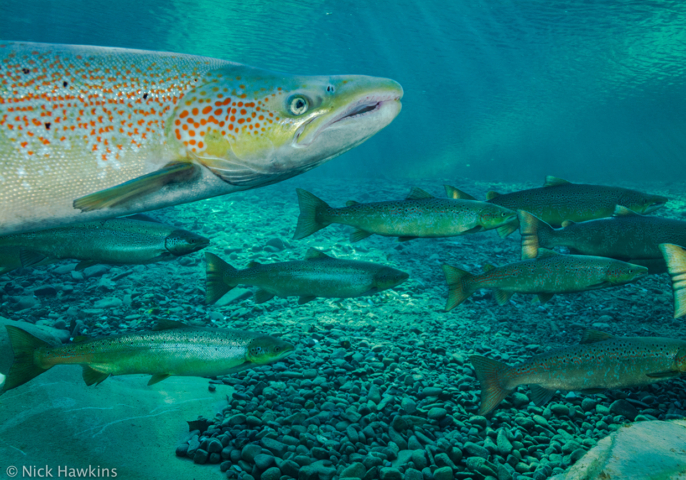Billionaire Irvings get help from feds to make good on promised pollution fix
“It just doesn’t pass the sniff test to me,” an incredulous Abbott told reporters in 2018.
Oh, the saga continues.
Our Fundy Baykeeper is questioning why the billionaire James Irving’s pulp and paper company needs a $100 million loan from the federal government to build a waste treatment facility it promised as part of its punishment for illegally polluting the St. John River for years.
“We know they’re wealthy, we know their companies make a profit,” Matt Abbott, also the Conservation Council’s director of marine conservation, told Canada’s National Observer in an article published March 1. “First of all, why don’t they just have the best pollution treatment system in the first place? And then when they’re caught without it, why don’t they just build it as quickly as possible?”
You’ll recall that in 2018, J.D. Irving Ltd. pleaded guilty to polluting the St. John River with effluent from its Saint John pulp mill. The company was charged with 15 violations (eventually reduced to three) of the federal Fisheries Act for polluting the national heritage river between June 2014 and August 2016.
At the time, Irving’s lawyers proposed a plea deal that would see Irving pay part of its $3.5-million fine to a salmon conservation company chaired by the pulp mill’s own co-CEO, James Irving.

“It just doesn’t pass the sniff test to me,” an incredulous Abbott told reporters in 2018.
What’s more, as if the proposed plea deal wasn’t bizarre enough, Irving said in court documents the previous summer that it intended to launch a Charter challenge claiming the pollution test used to charge the company—which has been used across Canada for decades—was unconstitutional. To which our Fundy Baykeeper responded that Irving was essentially claiming it had the “freedom to pollute.”
Flash forward to today, and the National Observer is reporting that, “in December, Export and Development Canada (EDC) advanced its [Irving Pulp and Paper] billionaire owners a loan to help build the waste treatment facility” that was still outstanding after five years.
Neither EDC nor Irving would give the National Observer details on the loan, such as the interest rate or payback period. Anne McInerney, vice-president of communications for Irving, told the Observer the loan was “syndicated” with the five big banks, and that the total amount was larger than EDC’s contribution.
Abbott said it certainly rubs him the wrong way that a family consistently ranked as one of Canada’s richest can access a $100-million loan of taxpayer money to help it make good on a promise it made after polluting an iconic river and precious Atlantic salmon habitat.
He imagines it feels the same for the people who called the Conservation Council office concerned about their health after learning of the illegal dumping in 2018.
